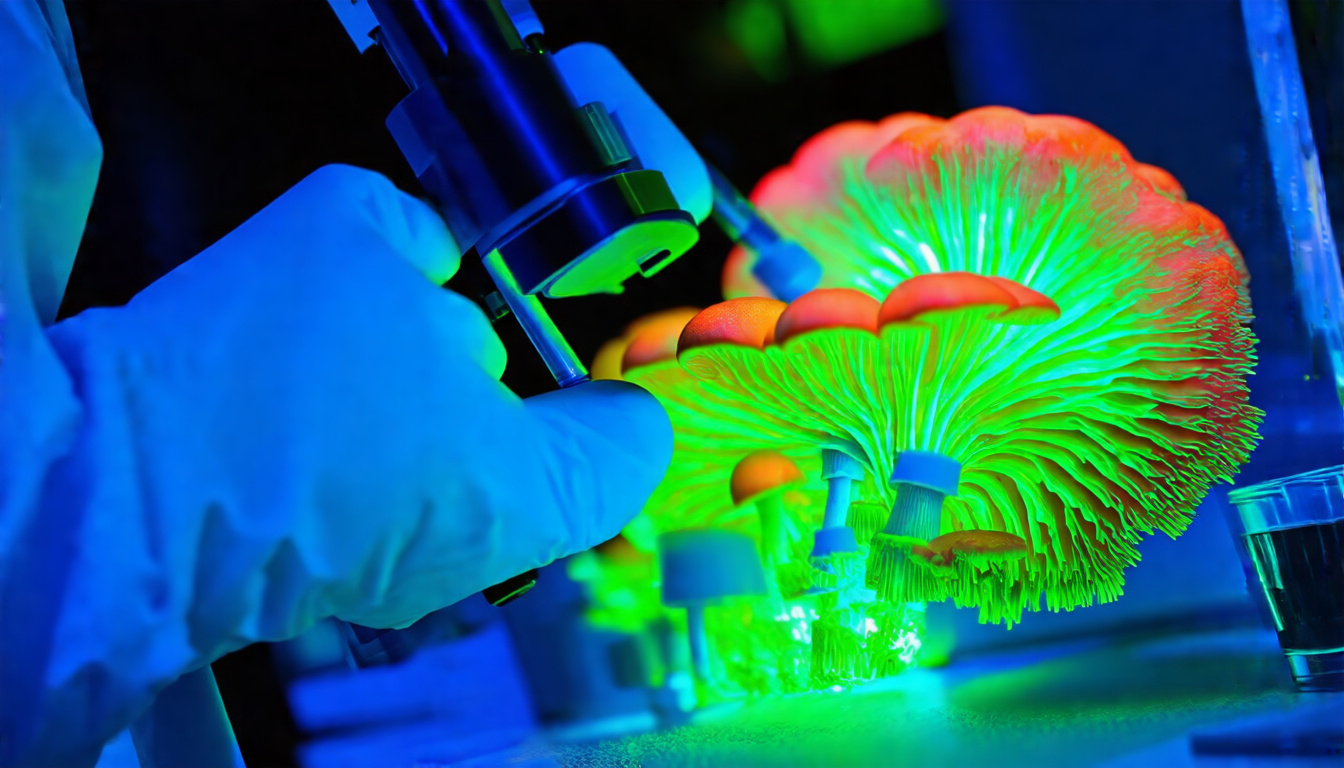Magic mushroom spores genetics UK enthusiasts and researchers uncover new insights. UK experts study magic mushroom spores closely. They focus on genes to learn about fungi, their biology, and their uses. As interest in psychedelic mushrooms grows in the UK, understanding spore genes becomes vital for science and cultivation. This article shows how UK experts unlock spore genetic secrets. It explains the latest finds, research methods, and future steps.
What Are Magic Mushroom Spores Genetics?
Magic mushroom spores genetics studies the DNA in psychedelic mushroom spores. These spores come mainly from the Psilocybe genus. Each spore holds genes that shape mushroom traits. They determine size, strength, color, and growth aspects.
Spores differ from the mushroom body. They do not carry psilocybin or active chemicals. Yet, spores are key for reproduction and genetic mix. By studying spore genes, scientists and growers can choose the best strains and refine growing methods.
Why UK Experts Focus on Magic Mushroom Spores Genetics
The UK sees a growing group of mycology researchers and psychedelic supporters. They want to learn more about magic mushrooms. UK experts study spore genes for several reasons:
• They preserve native strains by checking local Psilocybe DNA.
• They boost cultivation by breeding strong, potent strains.
• They drive science forward by mapping psilocybin gene routes.
• They explore medical uses by keeping strain quality steady.
Studying spore genes helps UK researchers build safe, effective, and sustainable practices with magic mushrooms.
The Genetic Makeup of Magic Mushroom Spores
Magic mushroom spores hold a haploid genome. This means one set of chromosomes resides in each spore. When spores grow, they can join and form a dikaryotic mycelium. This process mixes gene pools and allows mushroom growth.
Key features include:
• Genomic size: Mushrooms that produce psilocybin have small genomes, roughly 40 million base pairs.
• Gene clusters: Psilocybin genes gather in clusters, which helps them work together.
• Genetic diversity: Spores differ by strain and region. This variation shapes mushroom form and strength.
UK labs use advanced sequencing tools. These tools let scientists map spore genomes and uncover gene roles and evolution.
How UK Researchers Study Magic Mushroom Spores Genetics
UK experts mix traditional and modern tools to study spores. Their work follows several steps:
1. Spore Collection and Cultivation
They collect high-quality spores from mature mushrooms. Then, they grow spores under strict conditions to track their development.
2. DNA Extraction
Scientists break spore walls to extract clear genetic material. This step readies the DNA for close study.
3. Genetic Sequencing
Modern sequencing tools, like next-generation sequencing, decode the spore genes fast. This method reveals sequences for psilocybin production.
4. Comparative Genomics
Researchers compare genes from many strains and species. This work shows evolutionary ties and gene changes.
5. CRISPR and Gene Editing (Experimental)
Scientists now try CRISPR and other gene editing tools. These methods may soon change gene pathways to boost desired traits.
The Implications of Understanding Magic Mushroom Spores Genetics in the UK
UK scientists and fans see many gains from spore genetic research. They can:
• Breed strains with more psilocybin or better resistance.
• Conserve endangered native strains by knowing their genes.
• Support medical studies with uniform spore DNA.
• Meet legal rules by tracking strains as laws change.
This study helps grow safe, innovative uses in health, farming, and science.
Top Benefits of Magic Mushroom Spores Genetics Research in the UK
- It improves mushroom cultivation and yield.
- It aids drug and therapy development.
- It boosts biodiversity and ecological insights.
- It speeds up discoveries in mycology.
- It helps shape policies based on facts.
FAQs on Magic Mushroom Spores Genetics UK
Q1: Are magic mushroom spores legal to buy in the UK?
Yes, UK shops often sell magic mushroom spores. Spores do not have psilocybin. Still, growing or owning the mushrooms is illegal (source: UK Home Office guidelines).
Q2: How can I identify different magic mushroom spores genetics in the UK?
You can check spores with a microscope and sequencing tools. UK labs use DNA barcoding and examine mushroom features to tell strains apart.

Q3: What role does spore genetics play in mushroom potency?
The genes guide how much psilocybin a mushroom can make. Certain gene clusters can lead to stronger mushrooms. While the environment matters, genes lay the groundwork.
Conclusion: The Future of Magic Mushroom Spores Genetics in the UK
UK science and culture now support psychedelic studies. With a deep look into spore genetics, experts can boost therapy, conservation, and growth. Continued research and clear methods let the UK lead in smart psychedelic science. This path will secure safe, effective access while honoring nature’s mix.
If you care about fungal genetics or want to learn more about magic mushrooms, now is the time to act. Stay informed, back UK research, and join a movement that changes how we see these unique plants.
Discover more about spore genetics and their potential by reaching out to UK experts and research centers today!

Leave a Reply